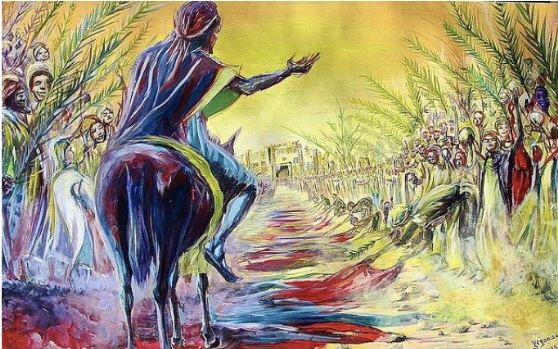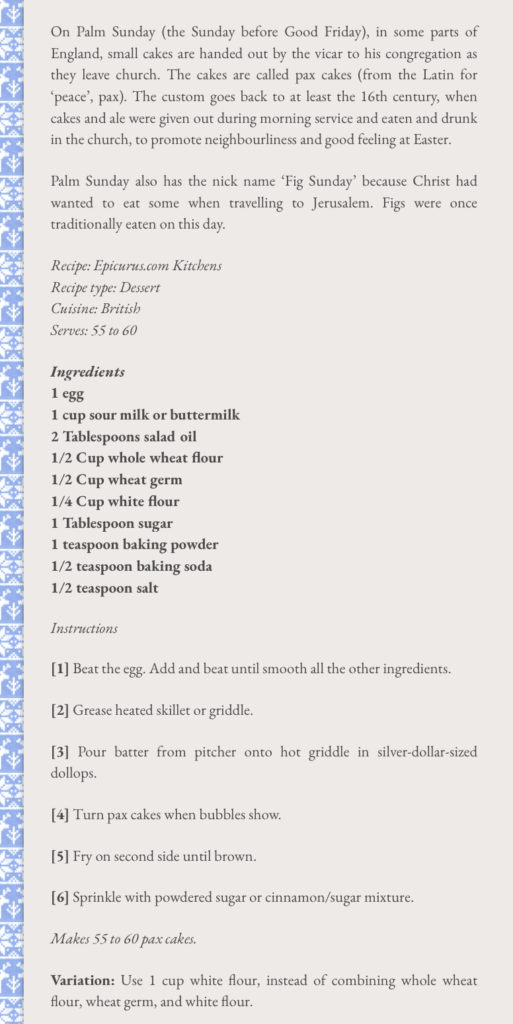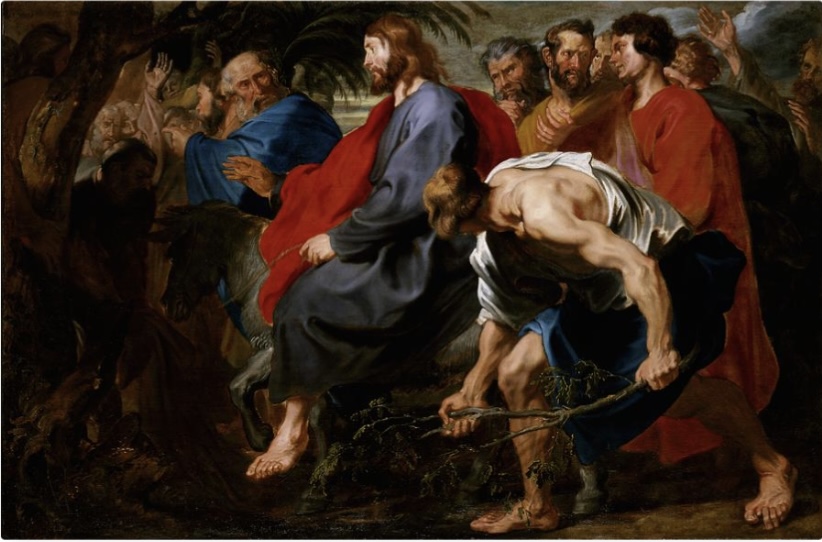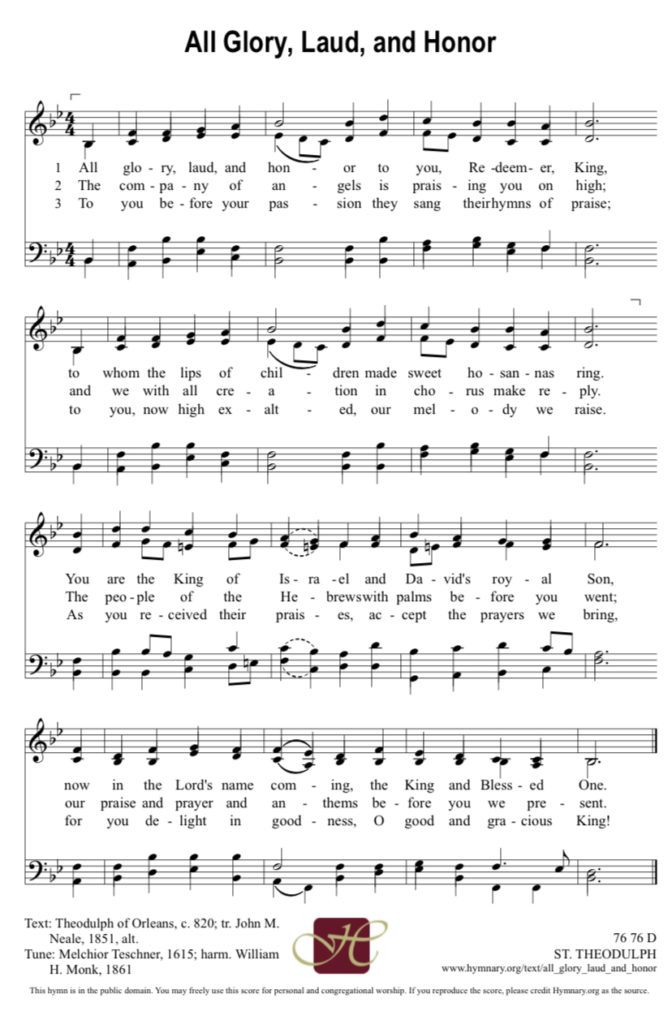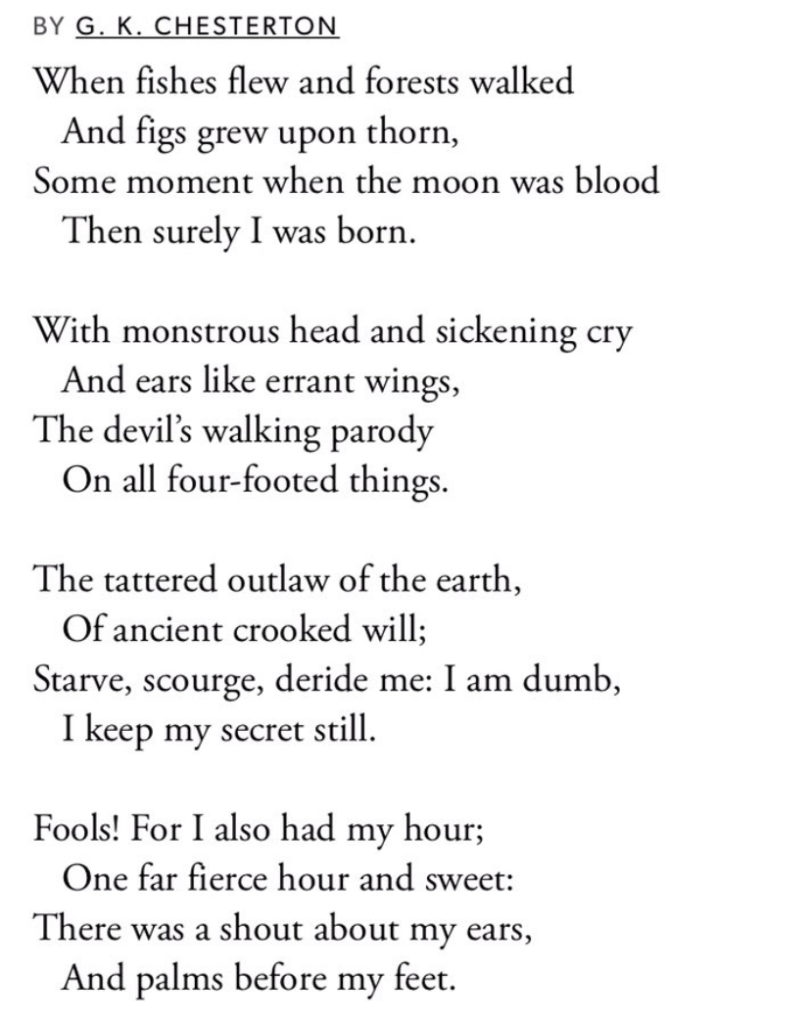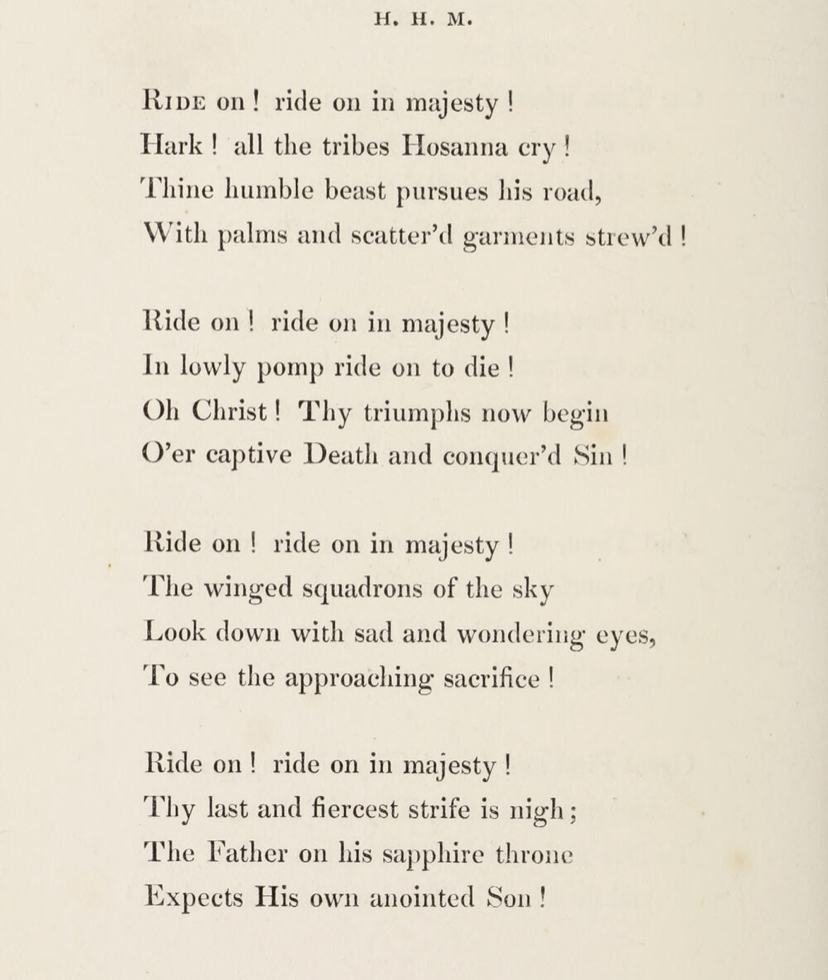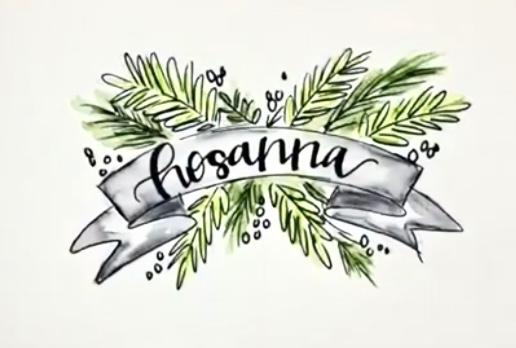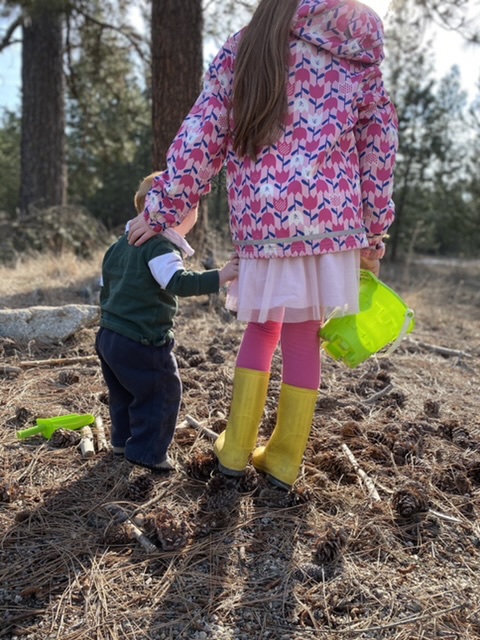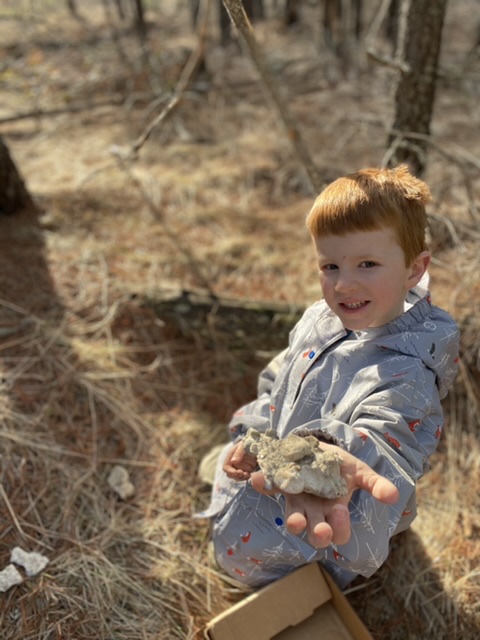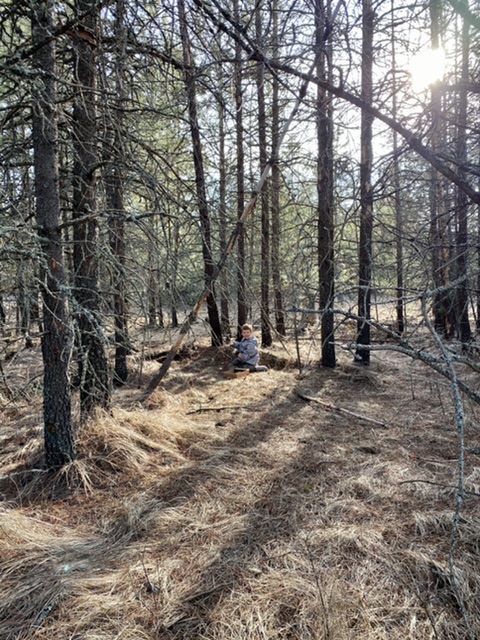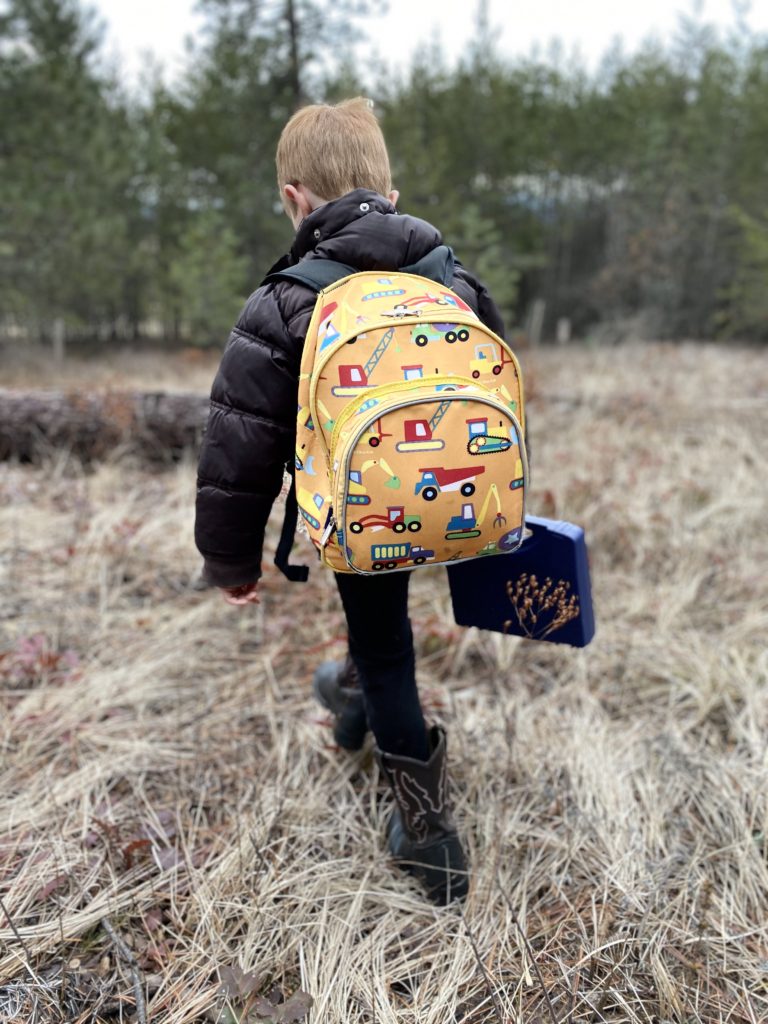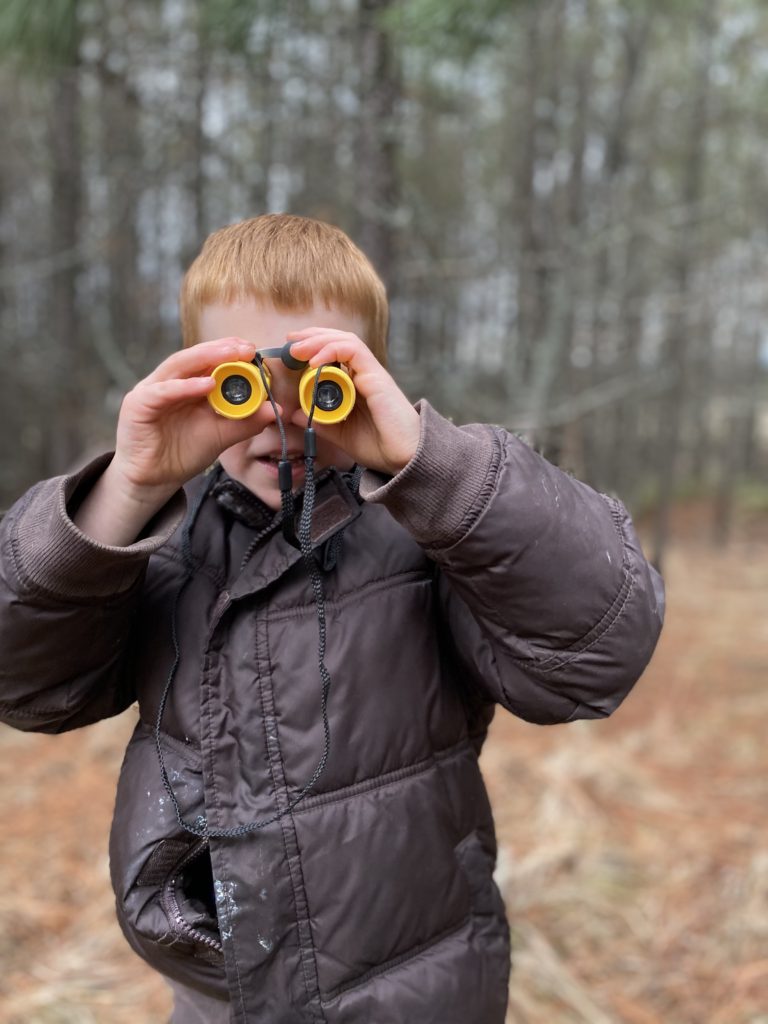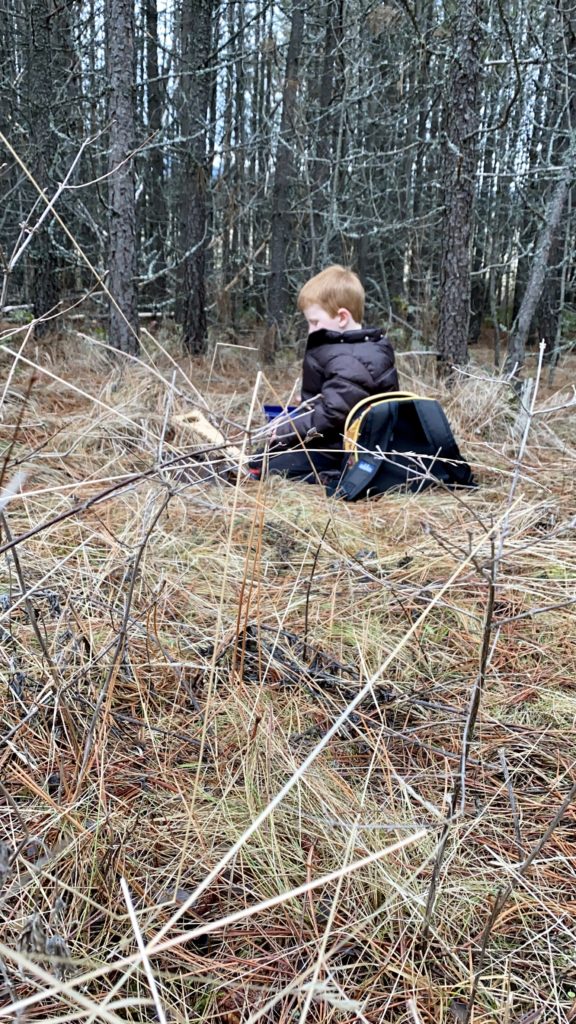Looking for some poetry to memorize with your children during this season? Let me share some pieces here that my family finds pertinent and lovely.
THAT EASTER DAY WITH JOY WAS BRIGHT
By J.M. Neale
That Easter day with joy was bright:
the sun shone out with fairer light
when to their longing eyes restored,
the apostles saw their risen Lord.
His risen flesh with radiance glowed,
his wounded hands and feet he showed;
those scars their solemn witness gave
that Christ was risen from the grave.
O Jesus, King of gentleness,
do thou thyself our hearts possess,
that we may give thee all our days
the willing tribute of our praise.
O Lord of all, with us abide
in this, our joyful Easter-tide;
from every weapon death can wield
thine own redeemed forever shield.
SEVEN STANZAS AT EASTER
By John Updike
Make no mistake: if he rose at all
It was as His body;
If the cell’s dissolution did not reverse, the molecule reknit,
The amino acids rekindle,
The Church will fall.
It was not as the flowers,
Each soft spring recurrent;
It was not as His Spirit in the mouths and fuddled eyes of the
Eleven apostles;
It was as His flesh; ours.
The same hinged thumbs and toes
The same valved heart
That—pierced—died, withered, paused, and then regathered
Out of enduring Might
New strength to enclose.
Let us not mock God with metaphor,
Analogy, sidestepping, transcendence,
Making of the event a parable, a sign painted in the faded
Credulity of earlier ages:
Let us walk through the door.
The stone is rolled back, not papier-mache,
Not a stone in a story,
But the vast rock of materiality that in the slow grinding of
Time will eclipse for each of us
The wide light of day.
And if we have an angel at the tomb,
Make it a real angel,
Weighty with Max Planck’s quanta, vivid with hair, opaque in
The dawn light, robed in real linen
Spun on a definite loom.
Let us not seek to make it less monstrous,
For our own convenience, our own sense of beauty,
Lest, awakened in one unthinkable hour, we are embarrassed
By the miracle,
And crushed by remonstrance.
THE DONKEY
By G.K. Chesterton
When fishes flew and forests walked
And figs grew upon thorn,
Some moment when the moon was blood
Then surely I was born.
With monstrous head and sickening cry
And ears like errant wings,
The devil’s walking parody
On all four-footed things.
The tattered outlaw of the earth,
Of ancient crooked will;
Starve, scourge, deride me: I am dumb,
I keep my secret still.
Fools! For I also had my hour;
One far fierce hour and sweet:
There was a shout about my ears,
And palms before my feet.
THE SCARS OF GOD’S HANDS
By Jason Farley
My soul clung to the dust,
now dust clings to my soul.
Your life-breath, once blown
up the nose of my father,
once exhaled in fruit-statutes,
once blown across the dry bones
until they could get up
and dance; breathe life
on me. Speak again the six
stanzas that climb up to rest.
Speak them into me. Tie
my ears to my dusty soul
and blow.
I, clay-jar, am
cracked. Scratched. Divoted. Grand
Canyons that leak. But, Lord, if
my scars leak out,
might they leak in?
If I am not air tight,
might your breath
sneak in?
Can scars be glory?
Can glory leave scars?
I will run to my heart’s end.
Enlarge my heart.
Might your scarred love
love the scarred?
Let your scarred hands
leave scars.
Blow. Blow hard enough
to dislodge the dust.
Even if it takes a hurricane.
Even if it leaves scars.
NO SCAR
By Amy Carmichael
Hast thou no scar?
No hidden scar on foot, or side, or hand?
I hear thee sung as mighty in the land,
I hear them hail thy bright ascendant star,
Hast thou no scar?
Hast thou no wound?
Yet I was wounded by the archers, spent,
Leaned Me against a tree to die, and rent
by ravening beasts that compassed Me, I swooned:
Hast thou no wound?
No wound, no scar?
Yet as the Master shall the servant be,
And, pierced are the feet that follow Me;
But thine are whole: can he have followed far
Who has no wound nor scar?
LEST WE FORGET
By Amy Carmichael
Home of our hearts, lest we forget
What our redemption meant to Thee,
Let our most reverent thoughts be set
Upon Thy Calvary.
We, when we suffer, turn and toss
And seek for ease, and seek again;
But Thou upon Thy bitter cross
Wast firmly fixed in pain.
And in our night star-clusters shine,
Flowers comfort us, and joy of song;
No star, no flower, no song was Thine,
But darkness three hours long.
We in our lesser mystery,
Of lingering ill, and winged death,
Would fain see clear; but could we see,
What need would be for faith?
O Lord beloved, Thy Calvary
Stills all our questions. Come, oh come,
Where children wandering wearily
Have not yet found their home.
EASTER LILY, A POEM
By Tinuviel
In unseen Saturday silence
Petals unfurl,
Mute trumpets crying out
With rolled-away stone:
“Take hope! Take heart!
Why do you seek the living among the dead?
He is not here; He is risen!
“Your trust, your toil,
His promise are not vain.
Death will be swallowed up in victory.
This body of death, This broken life,
This night of tears are not the end.
“At last trumpet’s fanfare
Dead shall be raised,
Dustless, Deathless, Glorious.”
White heralds soundless sound:
“Christ has died; Christ is risen; Christ will come again.”
Hallelujah!
AMORETTI LXVII: MOST GLORIOUS LORD OF LIFE
By Edmund Spenser
Most glorious Lord of life, that on this day,
Didst make thy triumph over death and sin:
And having harrow’d hell, didst bring away
Captivity thence captive, us to win:
This joyous day, dear Lord, with joy begin,
And grant that we for whom thou diddest die,
Being with thy dear blood clean wash’d from sin,
May live for ever in felicity.
And that thy love we weighing worthily,
May likewise love thee for the same again:
And for thy sake, that all like dear didst buy,
With love may one another entertain.
So let us love, dear love, like as we ought,
Love is the lesson which the Lord us taught.
LOVE’S AS WARM AS TEARS
By C.S. Lewis
Love’s as warm as tears,
Love is tears:
Pressure within the brain,
Tension at the throat,
Deluge, weeks of rain,
Haystacks afloat,
Featureless seas between
Hedges, where once was green.
Love’s as fierce as fire,
Love is fire:
All sorts – infernal heat
Clinkered with greed and pride,
Lyric desire, sharp-sweet,
Laughing, even when denied,
And that empyreal flame
Whence all loves came.
Love’s as fresh as spring,
Love is spring:
Bird-song hung in the air,
Cool smells in a wood,
Whispering, “Dare! Dare!”
To sap, to blood,
Telling “Ease, safety, rest,
Are good; not best.”
Love’s as hard as nails,
Love is nails:
Blunt, thick, hammered through
The medial nerves of One
Who, having made us, knew
The thing He had done,
Seeing (with all that is)
Our cross, and His.
~C.S. Lewis, Poems, (1964)
RESURRECTION SUNDAY, 1
By Joseph Carlson
The trumpet blast! The bells in Church tow’rs rings.
The cymbals crash! The hosts in Heaven sing.
Now let the nations all, their praises bring-
For Christ the risen Lord has conquered death!
The sun has risen from the darksome night;
He spreads his rays and on us casts his light.
A new day dawns on blind men, giving sight,
For Christ the risen Lord has conquered death!
Where is thy biting sting, O conquered death?
O grave, thy victory that stifles breath?
The sting and victory of death are gone-
Destroyed in that bright morning’s breaking dawn.
As all God’s children sing out loud and long,
Let Church bells ring out clear their ageless song.
RESURRECTION SUNDAY, 2
By Joseph Carlson
I hold an old gnarled seed in my gnarled hand.
Above the earth, it cannot hope to live.
Above the earth, it nothing has to give.
But plant that old gnarled seed, and watch the land.
One day my old gnarled hand will till no more;
Though much it gives, the best has not yet come;
Though much it sees, it has not seen its home,
But plant my gnarled hand, and watch as before.
Both seed and hand must die for them to grow;
Both must descend and find their homely grave.
For this world’s dirt has now been built to save
The dead, and raise the hands and seeds you sow.
O grave, O death, where is thy biting sting?
Our Jesus rose and has become our king.
EASTER
By Jason Farley
If it’s true,
Why do we live like we do?
Excerpts from THE HEEL-STONE
By Jason Farley
Wars and seed and bruises.
Our God promised us
wars and seeds and bruises.
But we would win
in the end.
The dragon’s curse—our promise—
is a man with a heel.
A seed with a heel.
A dragon skull crushed.
The ground remembered all of the blood from Abel.
The ground remembered all of the blood to Zechariah.
The ground knew the dead’s taste.
The ground swallowed up our dragon-slayer.
Life’s an unfamiliar flavor.
The Son of God was manifested,
to destroy the devil’s works.
Took on mortal flesh:
That, through death, he might destroy
him that had death’s power.
That death might swallow Death.
Dragon skulls echo when they crack.
Wars and seed and bruises.
The God of peace went to war.
Children of the God of Peace
now playing in the asp den.
The God of peace may soon crush Satan.
May soon crush Satan
underneath your feet.
JESUS IS THE BEAUTIFUL GATE
(Acts 3)
By Jason Farley
Jesus is the Beautiful Gate
through whom we walk and laugh and leap
into the presence of God the choreographer.
We join the sphere-dance like kings.
Join the sun, leaping and dancing,
covered lightly in light.
As Christ’s Life-Word
bubbles and leaps—alive in the dance—
within us. Stopped springs suddenly re-dug.
De-roof my heart.
Let down this paralyzed soul
to wind up a bucket of living water
To pour it out in sermon-song.
To un-dry the desert dust
that this cactus might fruit, might flower.
That it might be poured to fill the trough
of young calves, freed from their stalls
to walk and laugh and leap.
I GOT ME FLOWERS
By George Herbert
I got me flowers to strew Thy way,
I got me boughs off many a tree;
But Thou wast up by break of day,
And brought’st Thy sweets along with Thee.
The sunne arising in the East,
Though he give light, and th’ East perfume,
If they should offer to contest
With Thy arising, they presume.
Can there be any day but this,
Though many sunnes to shine endeavour?
We count three hundred, but we misse:
There is but one, and that one ever.
EASTER HERALDS
by Amos Russel Wells
Who came from the tomb
When Jesus came,
To scatter our gloom
With his living name?
‘Twas the angel Hope,
Whose sunbeams go
To the farthest scope
Of our darkest woe.
Hope came from the tomb
When the Saviour came.
Who came from the tomb
When Jesus came,
In the bursting bloom
Of a world aflame?
It was Joy, the angel,
Who sang and sang
Till the glad evangel
Through the wide world rang.
Joy came from the tomb
When the Saviour came.
Who came from the tomb
When Jesus came
From the conquered doom
Of our sin and shame?
It was Love, supreme
Of the angel host,
And her graces gleam
Where we need them most.
Love came from the tomb
When the Saviour came.
Easter Hymn
by A. E. Housman
If in that Syrian garden, ages slain,
You sleep, and know not you are dead in vain,
Nor even in dreams behold how dark and bright
Ascends in smoke and fire by day and night
The hate you died to quench and could but fan,
Sleep well and see no morning, son of man.
But if, the grave rent and the stone rolled by,
At the right hand of majesty on high
You sit, and sitting so remember yet
Your tears, your agony and bloody sweat,
Your cross and passion and the life you gave,
Bow hither out of heaven and see and save.
EASTER DAY
by Oscar Wilde
The silver trumpets rang across the Dome:
The people knelt upon the ground with awe:
And borne upon the necks of men I saw,
Like some great God, the Holy Lord of Rome.
Priest-like, he wore a robe more white than foam,
And, king-like, swathed himself in royal red,
Three crowns of gold rose high upon his head:
In splendour and in light the Pope passed home.
My heart stole back across wide wastes of years
To One who wandered by a lonely sea,
And sought in vain for any place of rest:
‘Foxes have holes, and every bird its nest,
I, only I, must wander wearily,
And bruise my feet, and drink wine salt with tears.’
SEE WHAT A MORNING
By Keith Getty
See, what a morning, gloriously bright
With the dawning of hope in Jerusalem
Folded the grave-clothes, tomb filled with light
As the angels announce, “Christ is risen!”
See God’s salvation plan
Wrought in love, borne in pain, paid in sacrifice
Fulfilled in Christ, the Man
For He lives, Christ is risen from the dead!
See Mary weeping, “Where is He laid?”
As in sorrow, she turns from the empty tomb
Hears a voice speaking, calling her name
It’s the Master, the Lord raised to life again!
This voice that spans the years
Speaking life, stirring hope, bringing peace to us
Will sound ’til He appears
For He lives, Christ is risen from the dead!
One with the Father, Ancient of Days
Through the Spirit who clothes faith with certainty
Honor and blessing, glory and praise
To the King crowned with pow’r and authority!
And we are raised with Him
Death is dead, love has won, Christ has conquered
And we shall reign with Him
For He lives, Christ is risen from the dead!
And we are raised with Him
Death is dead, love has won, Christ has conquered
And we shall reign with Him
For He lives, Christ is risen from the dead!

